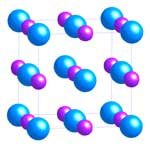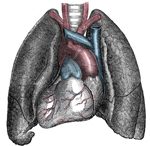Medical

Emaciation is a severe form of malnutrition in which most of the subcutaneous fat and muscle on a person has wasted away. Emaciated people are extremely thin and their bones are often visible beneath their skin, giving them a skeletal appearance. Although emaciation may be caused by a variety of medical conditions, in the context …
Read More

This article looks at the causes and effects of an electrolyte imbalance. An electrolyte is any substance that contains free ions and can therefore conduct an electric current. In practical terms, electrolytes are salt ions in solution, and physiologically, many are vitally important for basic bodily functions. The main electrolytes important to the body are …
Read More
One of the side effects of eating disorders can be edema. Swelling of the soft tissues as a result of excess water accumulation in the spaces between the cells is known as edema. Pitting Edema is the type of swelling seen when you apply pressure to the swollen area, and an indentation is left. Edema …
Read More
A common side effect of eating disorders is head dizziness. Head dizziness can be described as faintness or lightheadedness. A person with head dizziness has the sensation that he or she may faint, pass out, or lose consciousness. Characteristics of dizziness may include: A sense that you or your surroundings are spinning or moving (vertigo) …
Read More
Eating disorders affect digestion health in a number of ways. A deficiency in digestive enzymes will lead to the bodies inability to properly digest food and absorb nutrients. This can lead to malabsorption problems, malnutrition and electrolyte imbalances. Diseases that may be triggered by a history of an eating disorder include: Celiac Disease (gluten sensitivity), …
Read More
Possible Eating Disorders Effects are listed below. All should be taken very seriously. Click on each complication for more information. Amenorrhea Not having periods when you used to have periods is known as secondary amenorrhea. When it lasts six months or longer, it is also known as Hypothalamic amenorrhea (HA)… Anemia An estimated one-third of …
Read More
A possible complication of bulimia is cathartic colon. In fact, severe constipation or a cathartic colon is one of the clues physicians may have in diagnosing bulimia. Cathartic colon is nerve damage to the colon due to the abuse of laxatives. The colon wall becomes thin and the colon fails to function properly. Cathartic colon …
Read More

Disordered eating patterns affect the entire body and can result in a variety of serious consequences including an increased cardiovascular risk. Eating disorders are complex conditions that affect a person’s physical, emotional, and psychological well being. All types of eating disorders may negatively impact the cardiovascular system, though the mechanism of damage will vary with …
Read More
Eating disorders can affect a patient’s blood. An estimated one-third of anorexic patients have mild anemia (low red blood cell count). Leukopenia (low white blood cell count) occurs in up to 50 percent of anorexic patients. It is detected through a blood test, also called a complete blood count. A low white blood cell count …
Read More
Bloating can occur during long periods of starvation and probable excessive vomiting, laxatives, or diuretics abuse. A side effect of this is swelling over stomach or abdominal area which puts a person with an eating disorder in a destructive circle because the swelling is mistaken as fat. Can be caused by insufficient protein intake. Electrolyte …
Read More
 Eating Disorder Self Test. Take the EAT-26 self test to see if you might have eating disorder symptoms that might require professional evaluation. All answers are confidential.
Eating Disorder Self Test. Take the EAT-26 self test to see if you might have eating disorder symptoms that might require professional evaluation. All answers are confidential.
Find a Treatment Facility Near You
Click on a state below to find eating disorder treatment options that could be right for you.



 Eating Disorder Self Test. Take the EAT-26 self test to see if you might have eating disorder symptoms that might require professional evaluation. All answers are confidential.
Eating Disorder Self Test. Take the EAT-26 self test to see if you might have eating disorder symptoms that might require professional evaluation. All answers are confidential.